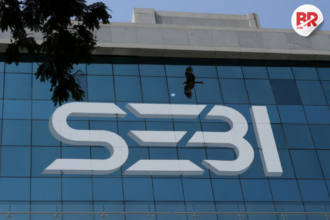
Eternal Limited has made waves with its recent announcement to cap foreign ownership at 49.5%. This move is raising questions across the business world: why this particular cap, and what does it mean for both local and international investors? Let’s break it down.
Why the 49.5% Foreign Ownership Cap?
At first glance, the cap might seem like an arbitrary number. But it’s far from that. Limiting foreign ownership at 49.5% is a strategic move that serves several important purposes for the company.

Maintaining Control
For any company, control is key. By setting a 49.5% limit on foreign ownership, Eternal Limited ensures that no external entity can hold a majority stake. This prevents hostile takeovers or outside forces from making drastic changes to the company’s strategy.
In simpler terms, it’s like keeping a firm grip on the wheel when navigating turbulent waters.
Strategic Independence
The 49.5% cap also allows Eternal Limited to focus on long-term goals without interference. Without too much pressure from foreign investors, the company can pursue strategies that align with its values and vision.
The result? Greater independence to thrive without constantly answering to global stakeholders with different agendas.
Also Read: Why Made in India Electronics Are the Next Big Thing on the Global Stage
Regulatory Compliance
In some sectors, local laws or government regulations require companies to maintain a certain level of domestic control. This cap could be in response to such regulatory requirements, ensuring Eternal Limited meets compliance standards and supports national interests.
Boosting Investor Confidence
For domestic investors, the 49.5% cap is a signal that the company is committed to the local market. By keeping more of the company in local hands, Eternal Limited may foster stronger investor trust, attracting additional investments from those who feel more comfortable with a homegrown presence.
The Road to Approval
The announcement is just the first step in a process that will require shareholder approval. On April 18, 2025, the board approved the proposal, but the final decision depends on a special resolution vote. This will take place via postal ballot, giving shareholders the chance to vote on the matter. It’s a bit like casting your vote for a new policy at your workplace—except here, the stakes are much higher.
Also Read: Bank Earnings Bonanza: Why ICICI Is Winning the Digital Race (And What YES Bank Still Lacks)
What Is a Special Resolution?
A special resolution requires a super-majority of at least 75% of shareholders to agree. It’s not a simple majority vote. A super-majority is necessary to ensure that the decision reflects broad support among shareholders, given its potential impact on the company’s future.
The Role of SEBI
The Securities and Exchange Board of India (SEBI) plays a crucial role in ensuring transparency during this process. SEBI makes sure that the entire postal ballot process, from announcing the resolution to counting the votes, is fair and transparent. This is essential to protect the rights of minority shareholders and ensure a smooth, equitable voting process.
What Does This Mean for Shareholders?
For current and potential shareholders, this cap may lead to some changes. Existing investors, particularly those from outside India, might find themselves restricted in how much of the company they can own. If the resolution passes, some will need to adjust their holdings accordingly.
For potential investors, this cap clearly defines the maximum stake they can acquire. While this may feel limiting to some, it also creates stability for the company by ensuring that no single group has too much control. It’s a balance between opening up to international capital and keeping a strong domestic presence.
Looking Ahead
Eternal Limited’s decision to cap foreign ownership is about safeguarding control and securing a steady course for the future. While it’s a strategic move, the decision ultimately rests with the shareholders. As the postal ballot results come in, we’ll see how this decision shapes the company’s future and its relationship with foreign investors.
Also Read: Shubham Agarwal: Controlled Options Trading Could Save You After a Bull Run—Here’s How












